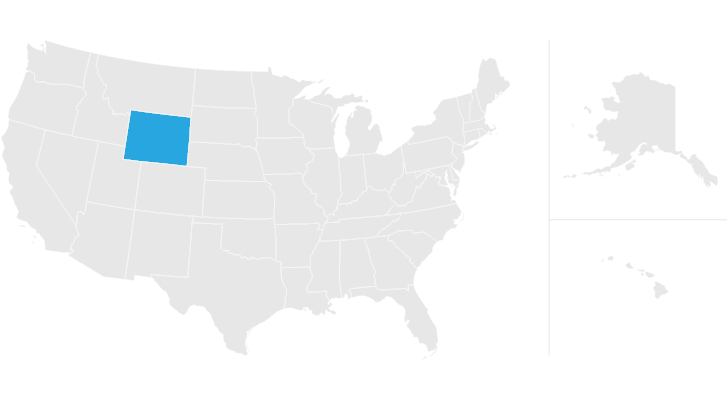Estate planning can be a complex process, and relying on a will can put your heirs through the time and expense of probate court. A living trust can help simplify things. This arrangement can hold your assets and property in a single place so they can be effectively distributed to your beneficiaries following your passing. As probate and inheritance laws differ from state to state, there are different factors to consider depending on where you live. In this guide, we explore the living trust process for Wyoming residents.
The process for creating a living trust is difficult, and can often require the help of a professional. If you’re looking to start a living trust in Wyoming, consider seeking out an estate planning attorney and financial advisor. Try using SmartAsset’s free matching tool to get paired with advisors in your area that can help.
How to Create a Living Trust in Wyoming
Creating a living trust in Wyoming involves these six steps:
- Figure out what kind of living trust you want. People who are single most often choose a single living trust. Those who are married have the option of creating a joint living trust to hold both independently and jointly owned assets.
- Decide what property and assets you want in your living trust. You can include just about anything in a living trust, including real estate, investments and heirlooms. Make sure you have all the appropriate ownership paperwork as well.
- Pick a trustee for your living trust. You can make yourself trustee, but keep in mind that you’ll also need to decide on a successor trustee for when you pass away.
- Finalize your living trust documents. You can use a computer program or work with an attorney to physically put the document together.
- Sign your living trust in front of a notary public.
- Fill your living trust with property and assets. It’s especially recommended that you seek the help of an attorney for this step.
What Is a Living Trust?
A living trust is a legal document that allows someone to protect their property and assets for their beneficiaries. Every living trust has a trustee who’s responsible for managing the trust, properly distributing its contents and following other instructions. While you can name yourself as trustee, be sure to name a successor who can take over down the road.
Living trusts come in two types: revocable and irrevocable. You can easily adjust a revocable trust, as you can add and remove assets as you please. An irrevocable trust, on the other hand, requires the permission of everyone named in the trust before a change is finalized.
Essentially, a revocable living trusts allows you to retain possession of your assets, whereas an irrevocable living trust makes them a separate entity. As a result, you’ll be personally taxed on everything in a revocable living trust, while an irrevocable living trust is taxed on its own.
How Much Does it Cost to Create a Living Trust in Wyoming?
The cost of setting up a living trust varies depending on how you decide to create it. If you do things through a computer program, you might end up spending around $200. Should you take the estate planning attorney route, the total cost could surpass $1,000. There are risks to DIY estate planning, so it’s recommended that you go with a lawyer, though you should be sure to pick one that specializes in trusts.
Why Should You Get a Living Trust in Wyoming?
There are several upsides to having a living trust, including the ability to have your family skip probate. This is the process by which states confirm the instructions and stipulations within a will. This can end up being very expensive and time-consuming, not to mention making private family affairs public. That’s why bypassing it is so beneficial.
Some states have simplified their probate process by adopting the Uniform Probate Code, but Wyoming has not done so. As such, the state’s probate process can be rather complex, which makes living trusts more appealing for Wyoming residents planning their estates.
Since a living trust mandates that you choose a successor trustee, you’ll avoid conservatorship should you become incapacitated at any point. A living trust also makes it easier to leave property or assets to minors. Through this, the trustee can keep the assets in the minor’s name until they reach a certain age.
Who Should Get a Living Trust in Wyoming?
Contrary to popular belief, you don’t need to be wealthy to have a living trust. And the lack of the Uniform Probate Code in Wyoming law is a great reason to consider living trusts.
Of course, living trusts naturally make more sense for anyone whose estate is complicated or large. If you don’t have much to be distributed after your death, though, creating a living trust may be more trouble than it’s worth. In fact, Wyoming offers a simplified probate process for estates worth less than $200,000; if your estate is below that cutoff, you might be fine just using a will.
Living Trusts vs. Wills
Even if you decide to use a living trust, you’ll still need a will that gives instructions regarding what should be done with anything not in your living trust.
A will can also name an executor, provide instructions on how to pay outstanding taxes and debts in your name, establish guardianship for children and select managers for children’s property. Here’s a comparison of living trusts and wills:
Living Trusts vs. Wills
| Situation | Living Trusts | Wills |
| Names a property beneficiary | Yes | Yes |
| Allows revisions to be made | Depends on type | Yes |
| Avoids probate court | Yes | No |
| Requires a notary | Yes | No |
| Names guardians for children | No | Yes |
| Names an executor | No | Yes |
| Requires witnesses | No | Yes |
Finally, note that living trusts and wills shouldn’t be confused with a living will, which specifies what medical action to take should you become incapacitated. A living will might also be a good idea, but it’s not an estate-planning tool.
Living Trusts and Taxes in Wyoming
Creating a living trust won’t affect your taxes, but as you embark upon the estate-planning process, it’s good to understand how estate and inheritance taxes might impact your estate. The good news for Wyoming residents is that the state does not levy an estate or inheritance tax. However, there are federal estate taxes that apply to wealthy people. For 2022, the threshold for federal estate taxes $12.06 million for people and $24.12 million for married couples. For 2023, this limit jumps to $12.92 million for individuals and $25.84 million for married couples.
The Trump tax plan set these new thresholds, which are set to expire in 2025 unless Congress makes them permanent. Unfortunately, a simple living trust won’t offer much protection from the federal estate tax.there’s still the federal estate tax, which affects any estate worth more than $11.4 million ($22.8 million for couples).
Bottom Line
Living trusts are a solid option for Wyoming residents who want to simplify the process of transferring their assets and property to their beneficiaries after they’ve died. While a living trust definitely isn’t for everyone, it’s worth taking the time to do the research to figure out if it’s a good idea for you and your family. If you decide that a living trust make sense for you, it’s strongly recommended that you seek the help of an attorney who specializes in trusts to walk you through the process.
Tips for Estate Planning
- Working with a financial advisor is a great way to make sure that your estate and financial plans are in order. Finding the right financial advisor that fits your needs doesn’t have to be hard. SmartAsset’s free tool matches you with financial advisors in your area in 5 minutes. If you’re ready to be matched with local advisors that will help you achieve your financial goals, get started now.
- Retirement and estate planning are crucially intertwined. It’s important to make sure that your retirement goals are reachable and sustainable so that you’ll be able to properly plan your estate. Use SmartAsset’s free retirement calculator to make sure you’re on track to financial stability in retirement.
Photo credit: ©iStock.com/Kameleon007, ©iStock.com/Oleksii Liskonih


